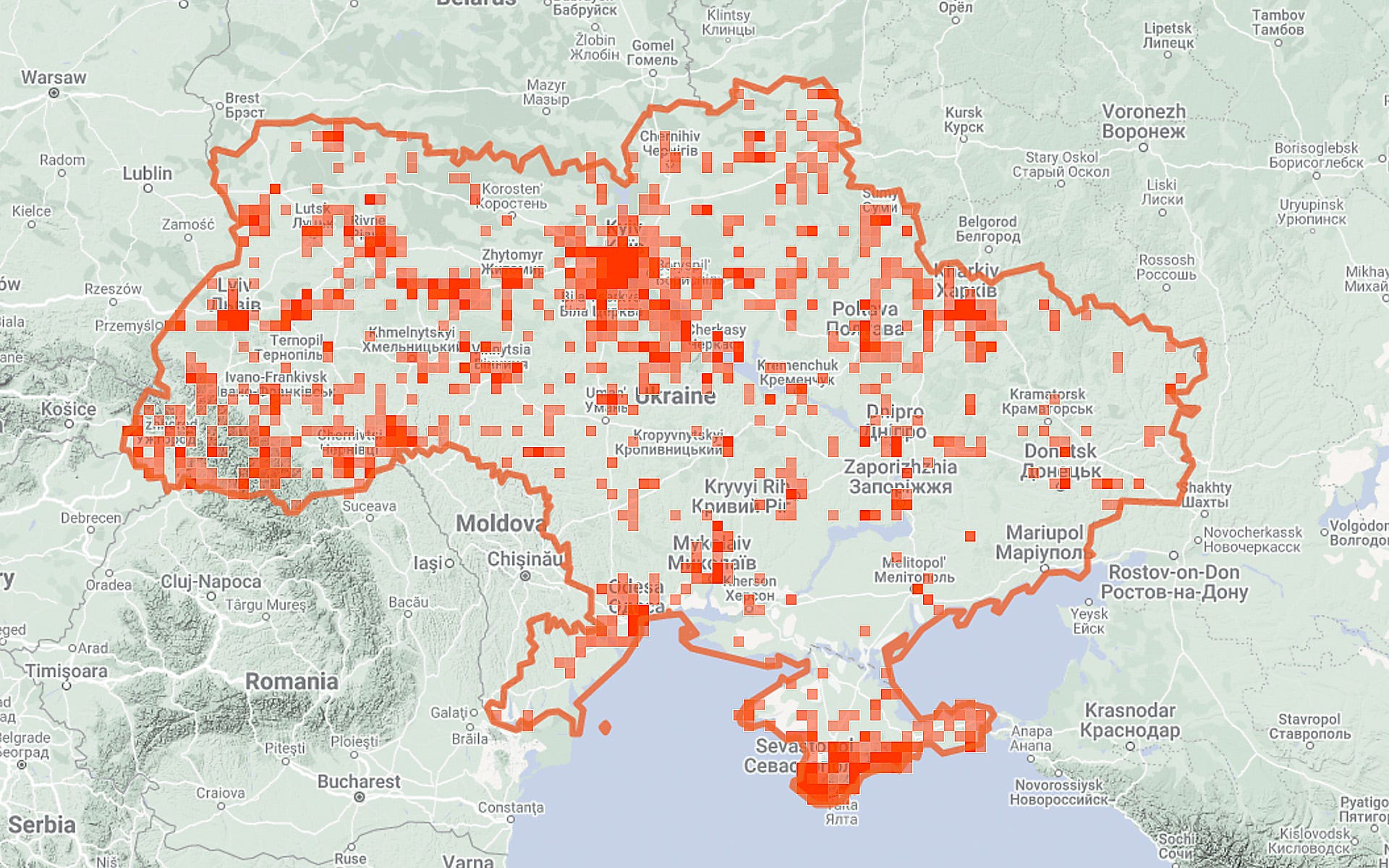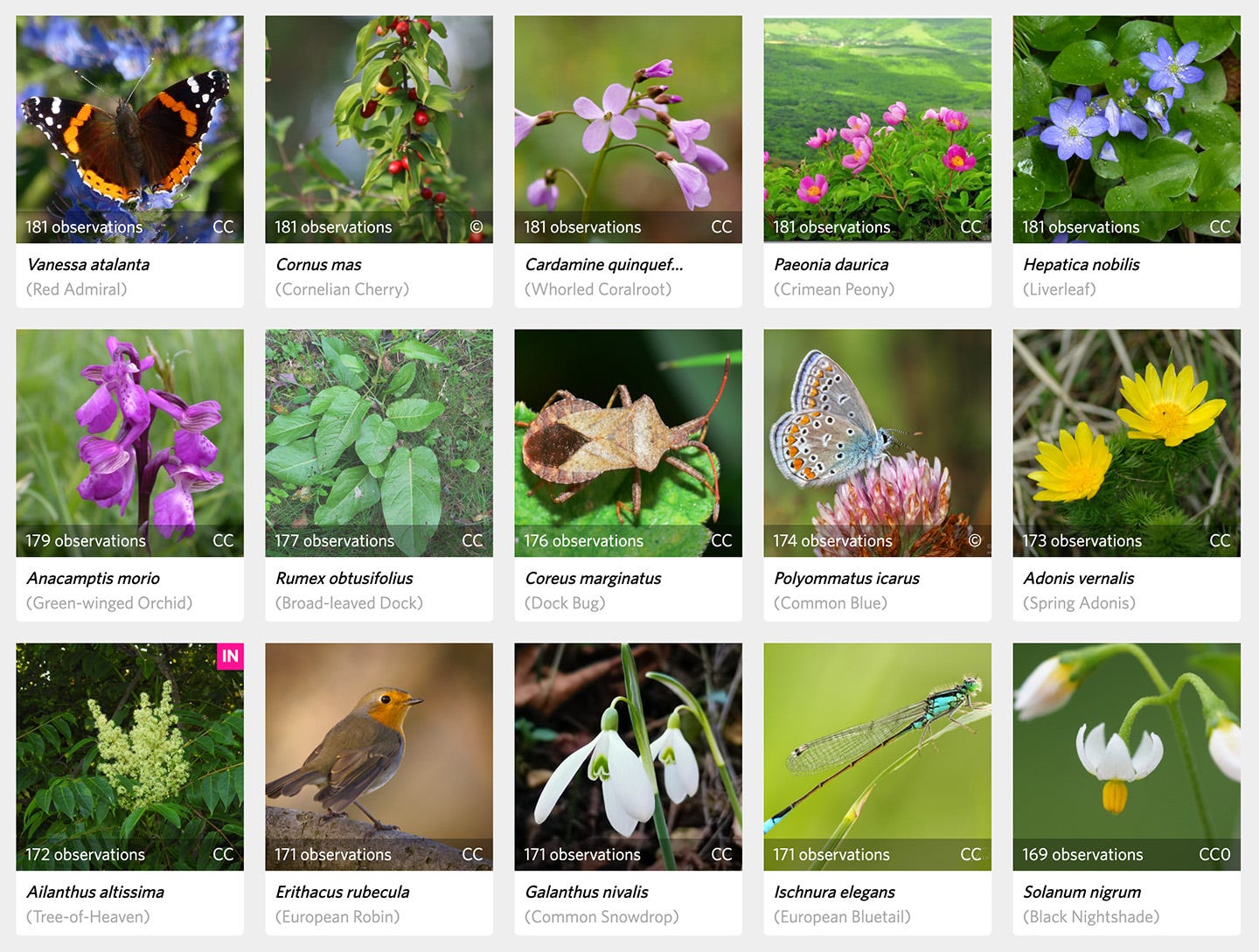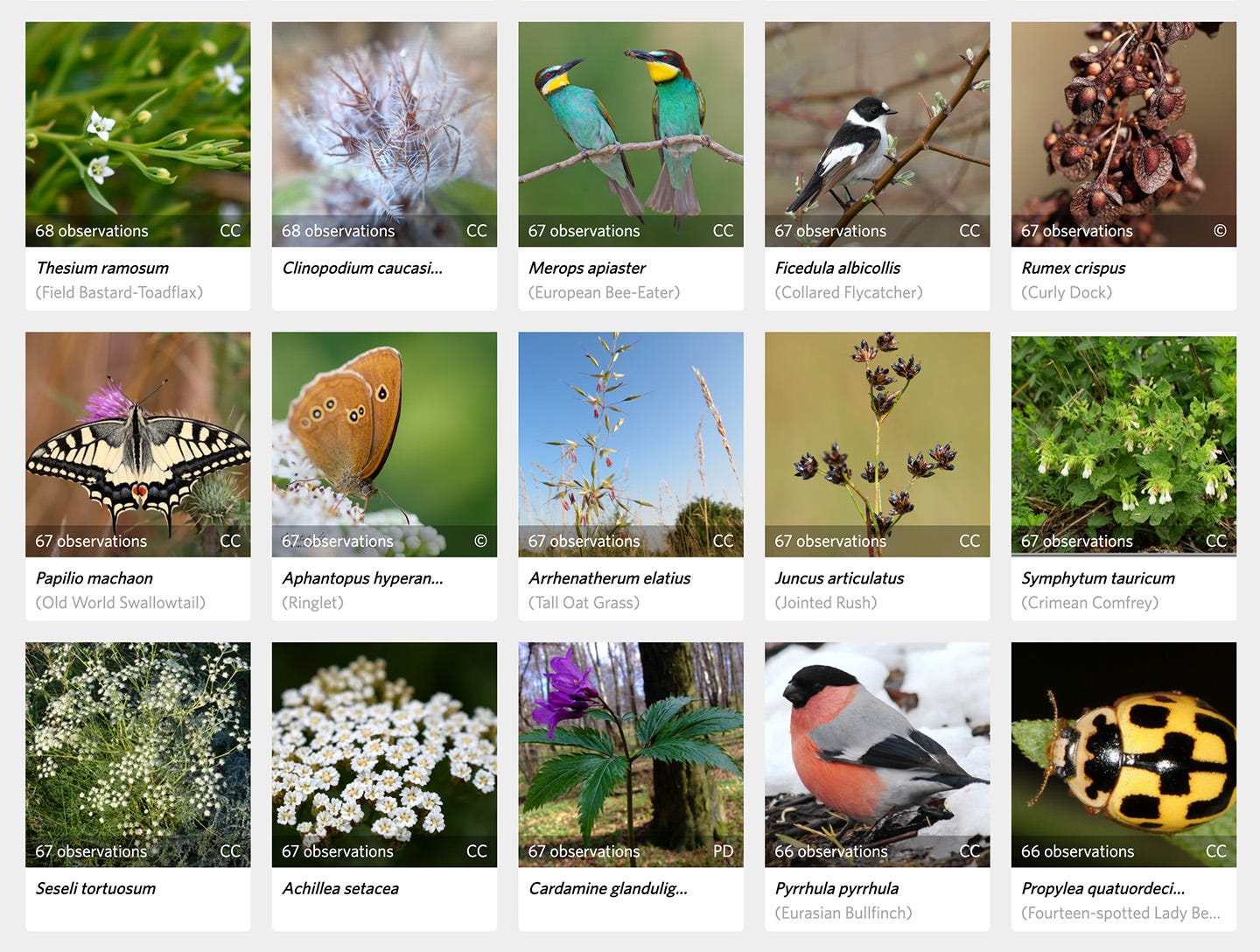The Nature of War
Amid the horrors of the Russian invasion, Ukrainians are sharing with the world their photographs of birds, butterflies, frogs, flowers and other life from nature.

ON THE DAY that Russia invaded, Mute Swans were moving in to ice-free lakes and ponds for the breeding season near Kyiv.
During the horrific siege of Mariupol, European Peacock butterflies were on the wing and Sweet Violets were blooming across much of Ukraine.
And now, as war rages ever on, I’m watching a second spring unfold in photographs of nature that Ukrainians have been posting to an online platform called iNaturalist. As a biologist here in the relative safety of North America, I’m struggling to reconcile the new life of the Ukraine spring in the shadow of this ongoing war.
Since the start of the war, upwards of 2,000 people in Ukraine have shared with the world their photos of plants, animals, fungi, lichens, and other living things on iNaturalist. Each image is a testament to the human bond with nature — even in the most difficult of times.
“The love of nature is a force stronger than bombs,” Oleksii Vasyliuk, a zoologist in Ukraine, told me by email, invoking a quote attributed to noted Ukrainian scientist Pavlo Tutkovsky (1858-1930).
These images are by no means the casual or performative manifestations of social media. Launched in 2008, iNaturalist is one of the most important crowd-sourced reservoirs of biological data on the planet. Its two million contributors worldwide range from backyard naturalists to research scientists.
Since the invasion on 24 February 2022, Ukrainians posting to iNaturalist have uploaded more than 160,000 images representing about 6,800 species in their country: storks and doves, hyacinths and dandelions, mistletoe and mushrooms, lady beetles and bumblebees.

As I first began to watch the spring emerge in those images a year ago, I contacted several Ukrainian biologists posting regularly to iNaturalist (and wrote an earlier version of this essay for The Boston Globe). A year later I’m relieved that as of this week the biologists were all still alive.
Many Ukrainians continue to share their nature photos on iNaturalist because the bombs and tanks have not yet reached them. Some are driven by the need to gather data for their research or for conservation. Others observe nature and submit photos as a form of defiance. And perhaps all of them continue to find refuge in the familiar.
“Nature inspires those who know how to see it even in the most difficult moments,” Vasyliuk wrote earlier in our exchange of messages through the iNaturalist platform. He once emailed me a recording of a common songbird called Eurasian Blue Tit singing as an air-raid warning siren blared in the city of Lviv.
Like that songbird, nature, of course, is dispassionate on matters of war. Swans unwittingly migrate north among fighter jets. Orchids cannot flee the bombs. Butterflies know nothing of bullets and refugees.
In a way, that kind of indifference on the part of nature is strangely reassuring to me. Even as we continue to kill one another, and even as wildlife and wild places become casualties of war, nature remains for us a force of its own, like gravity or faith or love. In nature we find our bearings — even in the company of the solitary and prosaic: the ethereal song of a Hermit Thrush, the elegance of a Maidenhair Fern, the glitter of a River Jewelwing damselfly.
Nature, of course, is not everyone’s respite. We also find escape, comfort, and meaning in music, art, literature, faith, and among other people. For the enslaved in America, for Jews in concentration camps, and for Vedran Smailović, who played his cello in the rubble of Sarajevo, music was a means of preserving dignity and humanity. So too have been our books (not “Tweets”).
Still, I’m uneasy with this idea of nature as a transcendent source of beauty and solace in a time of suffering. Is not my own enjoyment of spring somehow disrespectful to the victims in Ukraine or to those of countless horrors playing out elsewhere in the world? After all, during forest walks my most pressing concerns aren’t tanks or bombs, but typically the demands of a well-crafted essay or the finer points of plant identification.
Galyna Mykytynets, who studies reptiles and amphibians in Ukraine, offered logistical support to the Ukrainian military when the war began. Later she was forced to flee her community in southeastern Ukraine, which fell to Russian occupation last year. Now Mykytynets can no longer separate her research and devotion to reptiles and amphibians from her defiance and patriotism for Ukraine.
“Almost everyone I know goes to nature, studies, observes, writes scientific articles, teaches young people and tries to be useful in whatever way we can — and we all still try to support our military and believe in VICTORY!” she wrote in an iNaturalist message to me this week (brought to English with help from Google Translate). “I really want to return to my native city after its release, and I will love our nature, our steppes, our estuaries even more. So I agree that ‘Love for nature is a force stronger than bombs.’”
That intrinsic love of nature is now under daily assault by the distractions of glowing screens, by the artifice of consumerism. And yet even in war the bond endures. Although not nearly as strong in many people anymore, our bond with nature has defined what it means to be human — from when we drew crude paintings of wildlife on cave walls to this time of beauty shared with the world in photographs from a people at war.
Postscripts
A version of this essay first appeared in The Boston Globe on 24 April 2022.
I encourage anyone to become an iNaturalist contributor. Even if you don’t know the organism you’re photographing, experts on the platform will often identify your species for you. In some ways, iNaturalist is the internet at its finest: social, smart, helpful, altruistic, and not here to enrich its creators and treat the rest of us as commodities.
Yet again our final photography lecture is delayed. Sorry! My new deadline: April 30 (May Day Eve).
Finally, no matter what your analysis or prognosis is on the war for Ukraine, I suspect you’ll be moved by Galyna Mykytynets’ full response to my inquiry this week, which she allowed me to include for you. (Her original text is below the Google Translate version.)
Thank you for remembering us and this terrible war, which every day takes the lives of peaceful Ukrainians and our defenders, who hold back the enemy in the east.
We believe in the VICTORY of UKRAINE and the liberation of our land. We are very grateful to the Western allies for their support of Ukraine for the military and humanitarian aid they provide us.
We went through a very hard winter, I think you know that, it was very difficult all over the country, but we all believed that we must endure all the trials, because our soldiers endure even more adversity and give their lives for us!
Now it is spring and it has become easier. We all try to live, do our own business, and biologists too. Almost everyone I know goes to nature, studies, observes, writes scientific articles, teaches young people and tries to be useful in whatever way we can, and we all still try to support our military and believe in VICTORY!
I really want to return to my native city after its release and I will love our nature, our steppes, our estuaries even more. So I agree that "Love for nature is a force stronger than bombs." And love for Ukraine and faith in our armed forces in what is true with us! God is with us! The whole civilized world gives us hope for VICTORY! And nature and its observations help to survive and withstand everything.
Дякую, що пам'ятаєте про нас і про цю страшну війну, яка кожного дня забирає життя мирних українців і наших захисників, які стримують ворога на сході.
Ми віримо в ПЕРЕМОГУ УКРАЇНИ і звільнені нашої землі. Ми дуже вдячні західним союзникам за підтримку України за допомогу і військову і гуманітарну, яку надають нам.
Ми пережили дуже важку зиму, думаю ви це знаєте, по всій країні було дуже складно, але ми всі вірили, що маємо витримати всі випробування, бо наші воїни витримують ще більше лиха і віддають за нас свої життя!
Зараз весна і стало легше. Ми всі стараємось жити, займатися своїми справами і біологи теж - майже всі кого знаю їздять в природу, вивчають, спостерігають, пишуть наукові статті, навчають молодь і намагаються бути корисними тим чим можемо і всі ми намагаємось ще підтримувати наших військових і віримо в ПЕРЕМОГУ!
Я дуже хочу повернутися в рідне місто після його звільнення і ще більше буду любити нашу природу, наші степи, наші лимани. Так я згодна що «Любов до природи — сила сильніша за бомби». А любов до України і віра в наші збройні сили в те що з нами правда! з нами Бог! з нами весь цивілізований світ дає нам надію на ПЕРЕМОГУ! А природа і її спостереження допомагають вижити і витримати все.





Fantastic. Simply ... fantastic. Thank you for your deep and compassionate thinking on this most terrible of subjects.
I loved reading this so, so much. Thank you, and all of those humans who’ve continued to share what the world brings to life no matter what other humans do to destroy. 🧡🧡🧡